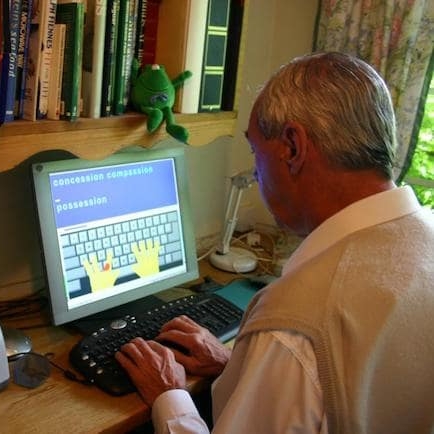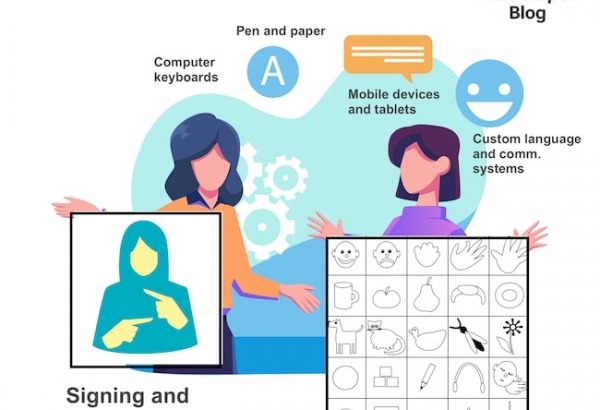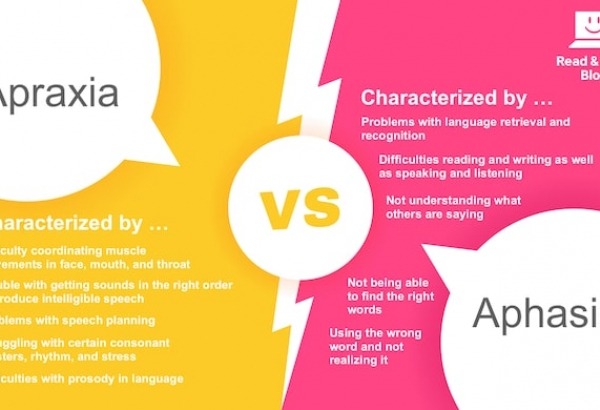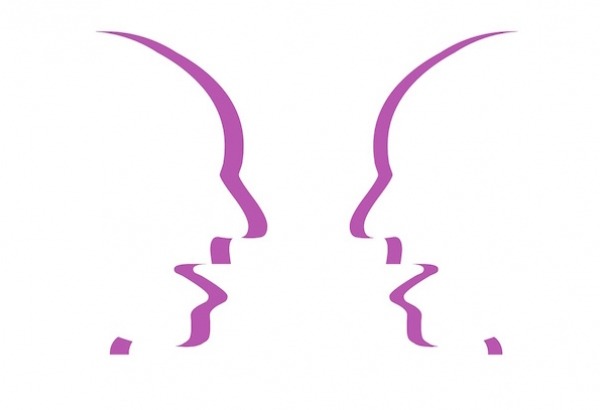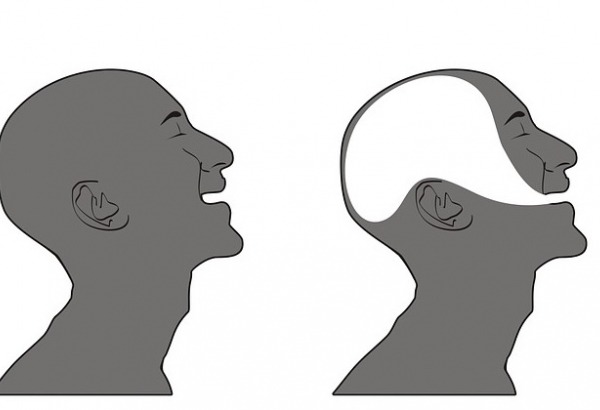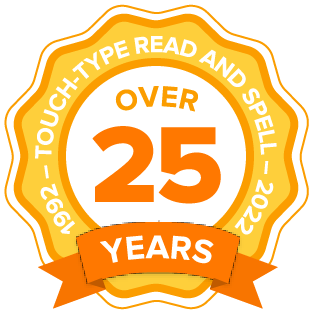Communicating with stroke patients

It takes us a lifetime to master communication skills in our mother tongue but our ability to communicate can be erased in an instant when a stroke occurs. That’s because a stroke cuts off blood supply to the brain, causing brain cells to be deprived of oxygen. Depending on the location and severity of a stroke, motor, memory and language skills can be impacted.
While it can be a long road to recovery for people who have had a stroke and suffer from aphasia, that doesn’t mean progress isn’t possible. Caregivers and family members who are in everyday contact with an individual recovering from a stroke know first hand the wonders of opening up channels of communication, whether it be through writing or speech.
The more support and resources an individual has access to, the better their chances of gradual or in the case of a mild stroke, full recovery.
One stroke survivor’s story
On January 1, 2000 Bob Cocks, a charismatic, funny, sociable and lovable rogue, suffered a massive stroke which left him with paralysis down his right side and no ability to speak. His mind was damaged by a blood clot that affected the parts of his brain responsible for communication. That means that while he was able to think and understand speech, he could not express himself.
Bob’s family caregivers started him in therapy which included practicing with a computer driven solution commonly used by individuals who suffer from dyslexia. The program provided a multi-sensory approach with words being presented letter by letter on a screen, accompanied by typing instructions and audio. Thanks to the help of a dedicated friend who visited every Wednesday, Bob practiced once a week.
The combination of seeing letters and words, hearing and then copying them worked wonders for his recovery therapy. Repetition and incentives, as well as the gradual introduction of new words, meant that over the past 16 years Bob has mastered scores of new words and is able to make himself understood through writing and speech.
Survivors regain communication skills via speech, writing or typing, one letter, word and sentence at a time. However, in all cases, recovery requires patience and a lot of hard work. Stories like Bob’s are not uncommon but it is important to understand that every person may require a unique solution depending on the severity and location of their stroke.
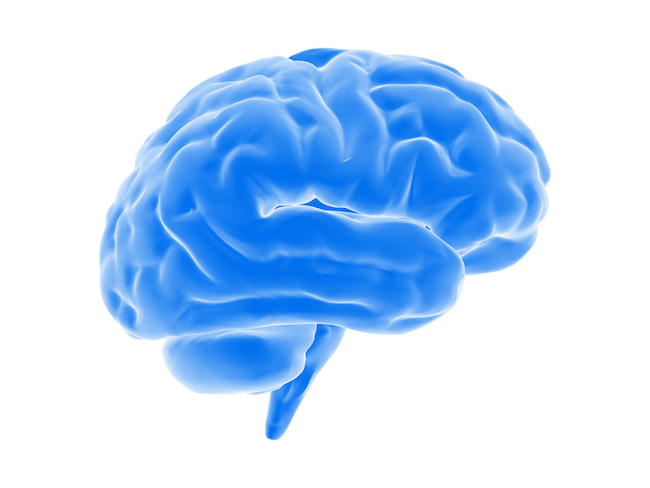
Understanding aphasia
Aphasia is the term used to describe a language difficulty due to brain damage. It typically impacts multiple areas including speaking, listening/understanding, reading and writing. In stroke victims, some areas may be more affected than others.
The human brain has two areas that process language. Located in the frontal lobe, Broca’s area is responsible for speech production and comprehension or understanding. People who have suffered a stroke often experience Broca’s aphasia, also known as expressive aphasia, which makes it difficult to communicate through speech.
When damage to Broca’s area occurs, speech can lose its fluidity and become a series of content words used without the grammar and phrasal structure of standard English.
Difficulties in locating, expressing and articulating the words one wants to say are also characteristic of Broca’s aphasia. Comprehension may be impacted for complex utterances but some level of understanding is usually retained.
In Bob’s case, Broca’s aphasia from a stroke caused both paralysis on his right side and speech production difficulties. This is because certain blood vessels which pass through Broca’s area control movement on the right side of the body.
Wernicke’s area, located in the cerebral cortex of the brain, is also commonly discussed in relation to aphasia. It controls the production of written and spoken language as well as comprehension. Someone with damage to Wernicke’s area, or Wernicke’s aphasia might be able to speak but not know the meaning of the words he or she is using.
People may not even be aware of the comprehension difficulties they are experiencing or the nonsense words in their speech. Global aphasia is the term used to describe instances in which both Broca and Wernicke’s areas have been damaged.

Recovery after a stroke
For family members and caregivers, helping their loved ones regain the ability to communicate, even in the most basic sense, is paramount to the recovery process.
Survivors face a number of challenges and often experience extreme frustration when they cannot express themselves to family and friends. Loss of language abilities also causes depression and de-motivation, which can impact on physical recovery or the ability to cope with paralysis.
Tips for family and caregivers
-
Immediately following a stroke, the full impact on communication skills isn’t always known. Understanding spoken language and producing speech are controlled by different parts of the brain. Keep in mind that if your loved one can’t speak, that doesn’t necessarily mean they cannot understand you.
-
When regular therapy is undertaken, progress may be greater in the weeks and months immediately after the stroke.
-
Ensure communication is the focus of your exchange. Don’t expect your loved one to be able to speak and perform another task at the same time and limit conversations to one or two people to avoid overwhelming the person with language.
-
Be patient. Recovery doesn’t happen overnight. You can help the person who’s had a stroke regain their confidence by setting realistic and attainable goals based on the amount of communicative ability they have lost. If they are not able to speak at all, simply learning to say a word or two can mean considerable progress.
Resources and support
People with aphasia need ample time and the right resources to recover their lost language ability. Learning to speak again can take weeks or at times even years, but it is worth the effort and hard work. If therapy is consistent and regular, as in Bob’s case, gradual progress can be made and communication challenges overcome.
Often computer programs offer the kind of repetition and gradual learning program people with aphasia most benefit from, as individuals can move through the learning experience at a pace appropriate for their recovery path.
Do you have a recovery story to share? Send us an email and join the the discussion!
For stroke recovery
TTRS is a program that can support individuals who have had a stroke in recovering communicative ability.
Chris Freeman
TTRS has a solution for you
An award-winning, multi-sensory course that teaches typing, reading and spelling
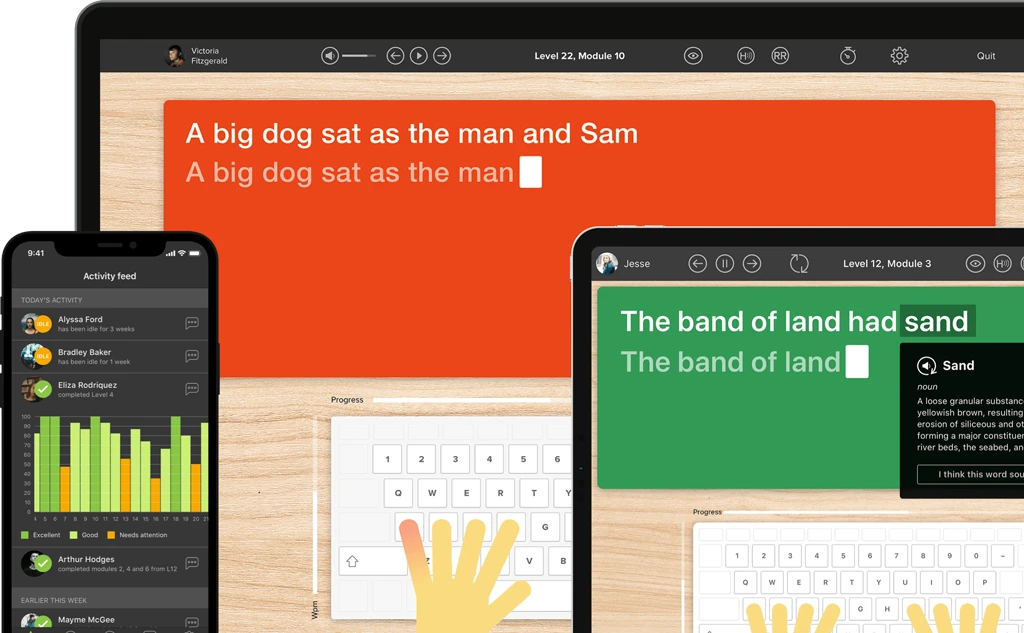
How does TTRS work?
Developed in line with language and education research
Teaches typing using a multi-sensory approach
The course is modular in design and easy to navigate
Includes school and personal interest subjects
Positive feedback and positive reinforcement
Reporting features help you monitor usage and progress

